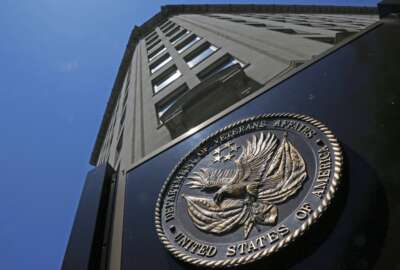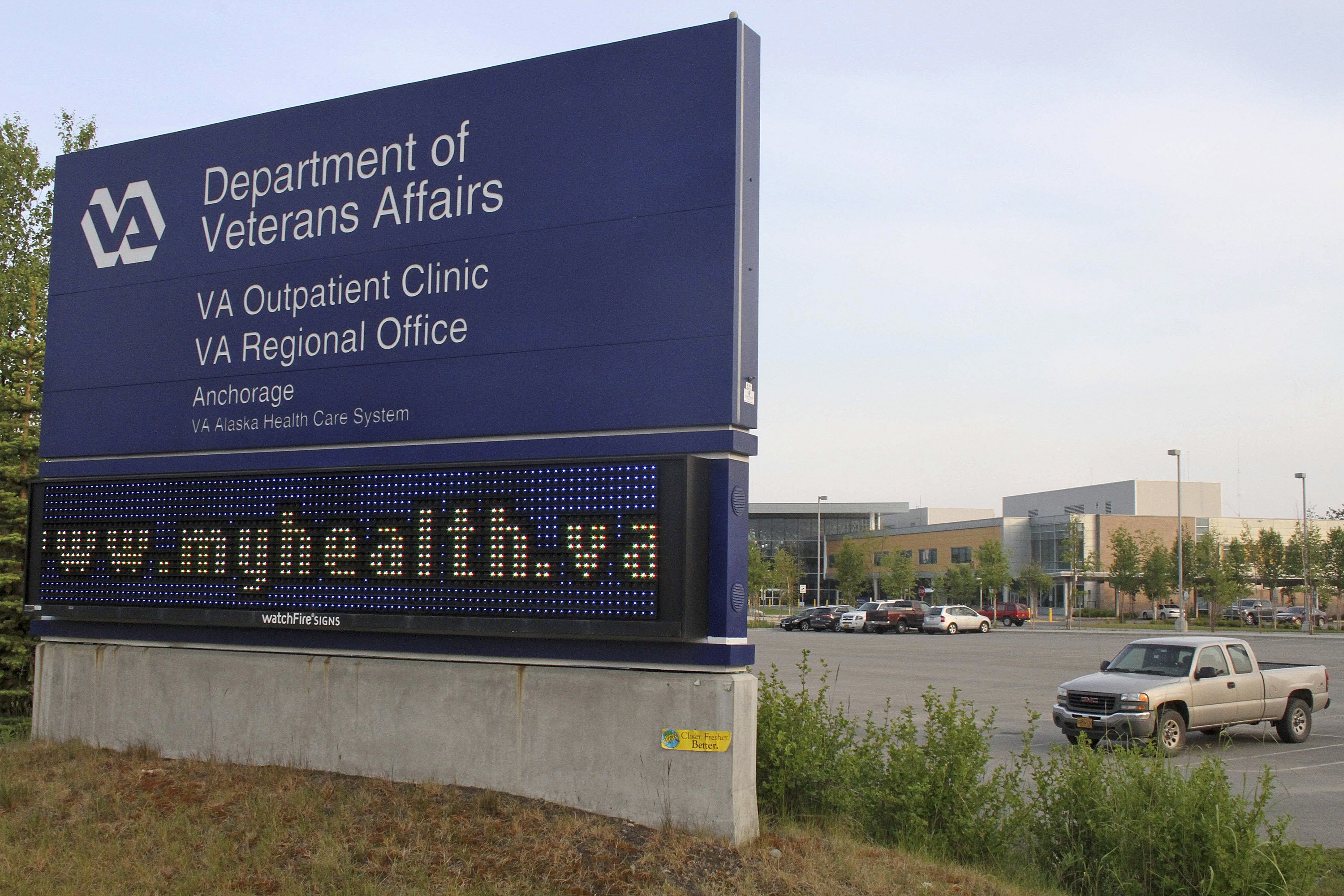VA touts engaged workforce as key to highest-ever veteran trust scores
The Department of Veterans Affairs says veterans who receive VA services are giving the VA the highest trust scores it's seen so far.
The Department of Veterans Affairs says veterans who receive VA services are giving the VA the highest trust scores it’s seen since itfirst tracked this data nearly a decade ago.
VA announced Tuesday that veteran trust scores in the department reached an all-time high of more than 80%. That’s up from 55%, when the VA first conducted this survey in 2016.
The VA is basing its scores on survey responses from more than 38,000 veterans who obtained VA services between January and March this year.
The Veteran Signals (VSignals) survey, conducted every quarter, asks veterans who obtained a wide range of VA services — including health care, disability compensation benefits, memorial affairs, GI Bill benefits and home loans — whether they trust the VA to fulfill its commitment to veterans.
Deputy Chief Veterans Experience Officer Barbara Morton told reporters Tuesday that the latest trust scores show VA is measuring its performance “not how we think we’re doing, but how veterans are telling us we are doing.”
“It signifies a long-term, year-over-year organizational commitment to earning trust with veterans by keeping the veteran at the center of what we do each day, to build and sustain a lifelong relationship with them — now and in the future,” Morton said.
VA Secretary Denis McDonough said the Veterans Experience Office’s work on improving veteran experiences at VA has led to a “major culture change,” and that the department’s workforce is “taking this to heart.”
“We strive to be an agency that fits our programs into veterans’ lives, rather than expecting veterans to change their lives to fit into our programs — which I think, frankly, for a long time, is what government programs did, and what VA did,” McDonough said.
VA recently announced veteran trust in its outpatient care increased to nearly 92% — another all-time record for the department. But VA’s trust scores extend beyond just health care.
McDonough is also tracking veteran trust scores on pension and compensation delivery.
“We are now measuring ourselves across the entire enterprise,” he said.
The VA sees room for more progress. It’s looking to bring its veteran trust score up to 90%.
Meanwhile, McDonough said women veterans and veterans of color are more likely to give lower trust scores to VA, including for outpatient care.
“We are saying to the individual veteran that we judge ourselves not on averages, but on that individual veteran’s experience. And hopefully, that accrues over time,” he said.
Morton said the VEO is working with the Veterans Benefits Administration to incorporate human-centered design into its service delivery.
“We know from doing some human-centered design research with veterans that the compensation experience can be a little bumpy at times. It’s a very legal process,” Morton said. “We’ve been working with them to really understand the moments that matter most in that journey. Some of them are really centered around communications. Are we setting expectations properly with veterans who are filing for compensation? There are other elements of medical exams. How might we be able to improve that experience?”
VA links employee satisfaction to higher vet scores
The VA is seeing higher trust scores as it’s providing historic levels of health care and benefits to veterans under the 2022 PACT Act, which expands eligibility for veterans exposed to toxic substances during their military service.
In some cases, the PACT Act is leading to veterans receiving VA health care or benefits for the first time. More than half of the 19 million veterans in the U.S. are currently signed up for some VA services.
“I hope that part of what’s reflected in these numbers is a sense from veterans that we want to have a relationship with them,” McDonough said. “It could be that we do have new relationships with veterans, and they’re finding it better than they might have otherwise feared or experienced themselves in the past. But I also hope that our efforts to reach out to veterans, to say to them, ‘We want a relationship with you,’ are conveying a sense that we want them in our care, that we want them getting their earned benefits, that we want a relationship with their caregivers and their survivors and their families.”
The VA is also seeing a strong link between employee satisfaction and veteran satisfaction in VA services. Recent VA research shows a 10% increase in its Employee Engagement Index scores resulted in a 4% average increase in overall hospital ratings.
Meanwhile, VA recently scored fifth among large agencies in the Partnership for Public Service’s Best Places to Work in the Federal Government rankings.
“Landing on the number-five spot for large agencies in Best Places to Work, to me, is a testament to our workforce feeling such a strong sense of purpose,” Morton said.
“We know from internal surveys that purpose is the strongest sentiment. So there may be other pain points that employees feel, but having that sense of connectivity to the mission, of the population we serve, is really something that consistently employees feel really, really good about,” she added.
McDonough said the VA is seeing historically low quit rates and historically low turnover, “meaning we have historically high retention.”
“We need our employees to feel that there is a connection between what they say their experience is and what we do about it,” McDonough said. “To date, we’ve been able to show changes resulting from their feedback. And it’s really incumbent on us to continue to show that. And if we don’t then we’ll have problems>”
‘Responsibility for this rests with me,’ McDonough says on improper VA bonuses
Next week, the House VA Committee is calling VA leaders to testify in a hearing on how the department awarded nearly $11 million in bonuses to more than 180 ineligible career executives.
The VA inspector general’s office recently found breakdowns in communications — and leadership — led to the bonuses being paid out last year.
McDonough said the IG “wrote a very clear, very helpful report that includes a series of important steps,” and that “we are moving with dispatch, not just having concurred with them, but to implement them.”
“I’ve been very clear that responsibility for this rests with me,” McDonough said. “I made clear that I should have put this into governance to make sure that everybody is tracking, and we’re able to move forthrightly and with full transparency on this issue.”
McDonough said VA has recovered about 90% of the improperly awarded bonuses so far.
Republican senators have called on some VA officials to step down because of the improper bonuses. However, McDonough said he has confidence in two of the officials called to testify — Under Secretary for Health Shereef Elnahal and Under Secretary for Benefits Joshua Jacobs.
“I have communicated to Dr. Elnahal and Mr. Jacobs that they have my confidence, and I would hope that we can count on them staying in their jobs, because I think it’s really important that we continue to perform at this high level,” he said.
Copyright © 2025 Federal News Network. All rights reserved. This website is not intended for users located within the European Economic Area.
Jory Heckman is a reporter at Federal News Network covering U.S. Postal Service, IRS, big data and technology issues.
Follow @jheckmanWFED






